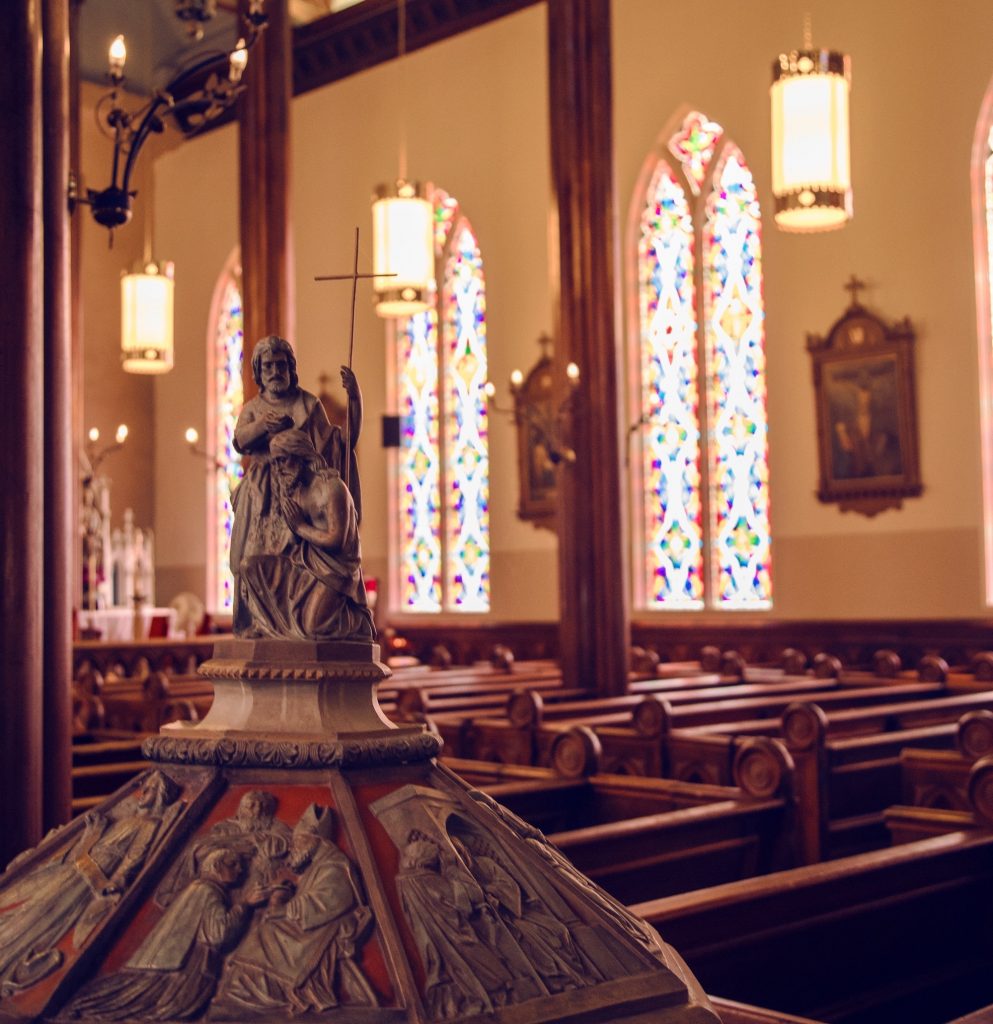“What’s the point?”
That was the question I found myself asking during church one Sunday. I doubt it was the first time I had asked this question. I’m sure I challenged my parents with it most Sundays when they would drag me to church as a kid.
But this time was different. This time I was all grown up and about ready to give up on church.
In high school, I had been part of a solid church community. I had post-church coffee on Sunday mornings, youth group on Sunday nights, guys’ group on Tuesdays, and helped out at the junior youth group on Fridays. Some weeks it felt like I was at church more often than our parish priest.
Then I started university in a different city, and all of that was gone. Church went from being a community of familiar faces to a place filled with strangers. There were a couple of Christian students’ groups that I made a half-hearted attempt to join, but honestly, they weren’t really my kind of Christians. Some of them tucked their t-shirts into their jeans.
Church became something I would do once a week, from 10am until the minute the service ended. I figured that as long as I made sure I went to church on Sundays, that would be enough. Yet only a few months in, I found myself sitting on a pew and questioning why I was even there.
TICKING THE BOX
It’s easy to fall into the mindset of just “ticking the box” when we go to church each Sunday. That was what happened to me. Instead of going to church to grow in my relationship with God and with other Christians, I just went because that’s what I was supposed to do.
The problem with this “ticking the box” mentality is that church was never meant to just be a place we spend an hour every Sunday just to make God (or our parents) happy. Church was never actually meant to refer to a place at all.
WE CAN’T DO FAITH ALONE
In the Bible, the word “church” is always used about a group of people. The original Greek term, ekklesia, was used in the Old Testament to refer to the Israelites — God’s chosen people — when they gathered at Mt Sinai to receive the Ten Commandments from God.
In the New Testament, the word describes the early Christians, who would sell all of their worldly possessions to live their day-to-day lives in community with one another (Acts 2:42). Our understanding of church has changed since then, but one thing hasn’t changed: we aren’t meant to do faith alone.
Our church community should be like our Christian family. Think about your own family. Do you think your relationships with your parents or with your siblings would flourish if you reduced them to only an hour every week? No way!
It’s no surprise that when I was only investing an hour every week into my church community, I was left asking myself what the point was. Just as we share life with our family at home, we’re called to share life with our church community. This community should be the place we go to share our successes, to get support when we are struggling, and to help out where we are needed.
WANT RELATIONSHIP
GAME CHANGERS?
Subscribe to the newsletter for weekly relationship advice,
date ideas and the latest blog posts.
INVESTING IN COMMUNITY
For me, the turning point came when I made a conscious decision to invest in my parish community. Looking around the pews one Sunday, I noticed there were actually a few other people my age present. It took a bit of courage, but I started making an effort to chat with these people after church.
Eventually, our little group of young adults made a tradition of going out for brunch after the service. Four years later, the tradition is still alive and well. Hot tip: sharing life with people is a lot easier when you know there’s going to be bacon and maple syrup involved.
I also started to get involved in the day-to-day life of the church. If you’re looking for one way to invest more in your church, this is a great place to start. Be part of the youth group, sign up to be a greeter, or volunteer to help out with music. It’s by participating that we enter into community life.
It might not always be easy. The church I attended wasn’t exactly overflowing with hip, young Christians. Most churchgoers would sit a comfortable distance away from each other. We politely shook hands when we were encouraged to greet each other, but we never made an effort to learn each other’s names.
Like many churches, mine had a bit of a culture problem. But the only way I was going to change that culture for the better — even just a little bit — was if I started with myself.
When our relationship with the Church gets hard, it’s easy to blame the lack of young people, the current scandals, or how busy our lives are. What’s difficult, but worthwhile, is asking how we can love and make time for our Church family in spite of all that.
There are no shortcuts. You can’t just fill up your calendar with church-based activities and hope for the best. You’ve got to put in the time and energy that it takes to form authentic relationships.
If you’re willing to make an effort, I’ve found that there’s a whole lot of joy, support, and growth to be found within our church family. Enough that I would never want to church to be limited to just an hour on Sunday.
This blog was originally posted on LifeTeen.com.
